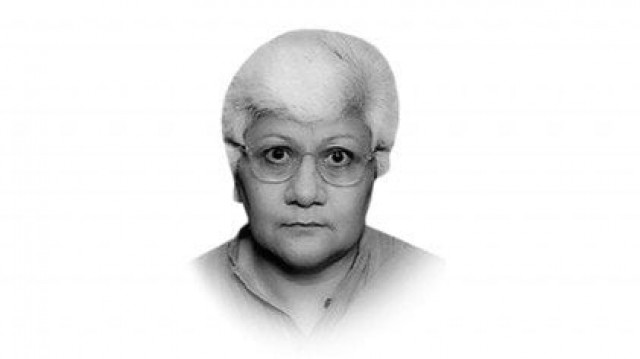Democracy

In Pakistan however, a unique version of democracy co-exists with an array of economic arrangements in different parts of the country that includes feudal land ownership in interior Sindh and parts of the Punjab, tribal forms in Balochistan and Khyber-Pakhtunkhwa, and capitalist development in parts of all the provinces and in large urban centers. Additionally, the military and civilian bureaucracies wield enormous power, supported by large landowners and capitalists whose interests are in turn protected by these state institutions. Clashing interests generate competing versions of democracy.
The government chooses to define democracy almost entirely in terms of elections, voting and majoritarianism. For the government the fact that someone is elected by popular vote means that he is above the law. If the elected person has committed fraud or some other crime, he cannot be held accountable for the people want him irrespective of his behaviour. This is the argument that has been made in favour of Jamshed Dasti. Here political legitimacy is conflated with legal legitimacy. If a person has political legitimacy, he is legally unaccountable. The government is not too concerned with issues of the rule of law or the principle of equality before law.
The Supreme Court of Pakistan seems to define democracy exclusively in terms of rule of law but is less concerned with the principle of the separation of the powers. It thus seeks to make appointments that are the exclusive domain of the executive. It arrogates to itself the power to set the prices of sugar and control traffic jams in Karachi. Even the right of the parliament to make and amend laws is viewed with scepticism and it seems that some elements among the lawyers community are overzealous in attempting to subordinate all legislation and constitutional amendments to judicial dogma.
The religious parties seek to ensure that religion remains the dominant ideology of the state and is reflected in its laws, policies and actions as well as the official curricula and media. For them, democracy in Pakistan must be subject to religious provisions. They believe that a true democracy is one in which the state privileges one religion over others and establishes its hegemony over all citizens and all institutions. They support the mainstream parties in return for concessions on the issues of women and religious minorities. The appointment of Maulana Sherani in the Council of Islamic Ideology is a case in point. Another example is the support extended by MMA to Musharraf’s 17th amendment in return for retaining power in Khyber-Pakhtunkhwa.
The mainstream political parties view democracy as the means to personal gain and privilege. For them, democracy is business by another name. They seek to further the interests of their class — whether in the form of sugar cartels, the refusal to impose the agricultural income tax, or to win tax exemptions on capital gain. These classes are provided protection for their property, business and interests by the military elite which, in turn, manages to win a huge budget without transparency and accountability regarding how the money is spent. Additionally, the military wins plots, houses and kickbacks in defence deals in return for ‘allowing’ these parties to remain in power for specified periods and to pursue their business agendas. The various ruling groups— feudal and capitalist parties, religious parties, senior civil and military bureaucracies (including judiciary) — collude and cooperate in maintaining the status quo of power and privilege in Pakistan. The differing, and apparently conflicting, versions of democracy are weapons that are used in furthering the power of the classes whom they represent.
Published in The Express Tribune, July 7th, 2010.















COMMENTS
Comments are moderated and generally will be posted if they are on-topic and not abusive.
For more information, please see our Comments FAQ